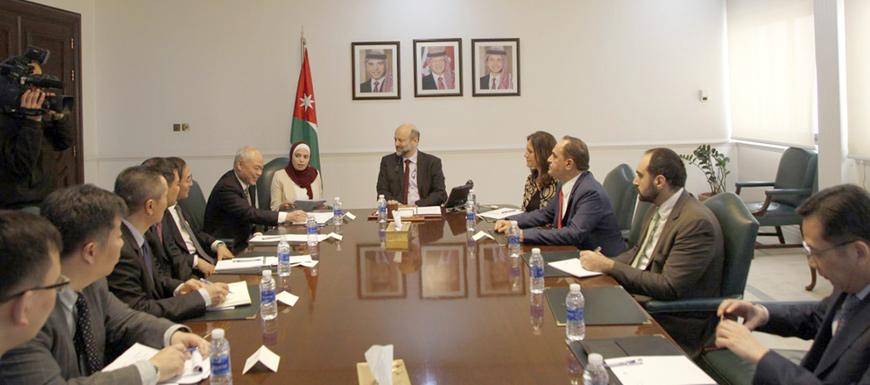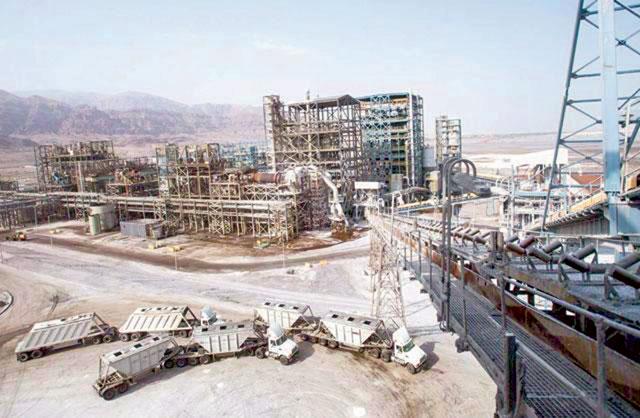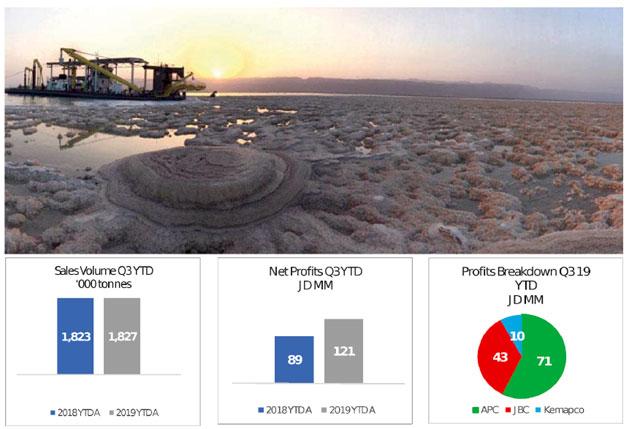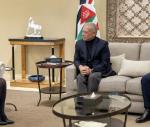You are here
Canadian potash company to sell stake in Jordan’s APC
By JT - Oct 24,2017 - Last updated at Oct 24,2017
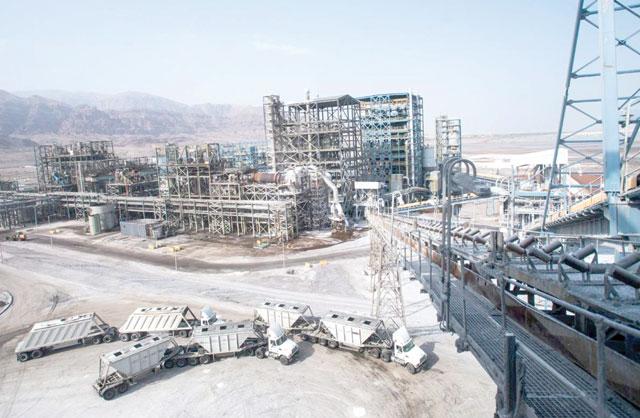
Arab Potash Company Ghour Al Safi Plant (Photo courtesy of Arab Potash Company)
AMMAN — Canada-based PotashCorp has decided to sell its stake in Jordan’s Arab Potash Company (APC), along with its global investments in Israeli and Chilean companies.
PotashCorp runs its stake in the Jordanian firm through its subsidiary PCS Jordan LLC. In 2003, the Canadian investor bought 28 per cent of APC shares from the government of Jordan and became a strategic partner.
According to an APC statement e-mailed to The Jordan Times, the mother company’s decision came in response to the anti-trust regulatory requirements stipulated by the Competition Commission of India (CCI).
APC’s Board Chairman Jamal Sarayrah explained that the CCI required PotashCorp to divest from APC, SQM of Chile, and ICL of Israel in keeping with the principles of fair competition as defined by international anti-trust laws.
Compliance with the anti-trust rules allows PotashCorp to complete a merger with Agrium Inc., a global producer and distributor of agricultural products, services and solutions.
APC President and CEO Brent Heimann has recently said in a statement that PotashCorp “is very happy with its investment in APC and does not want to sell its shares in the company. However, they are forced to as the result of a merger”.
He expected the sale to amount to over JD400 million, considering “today’s APC’s stock price in the Amman Stock Exchange at around JD17 per share”.
However, business will proceed as usual in the Kingdom's leading mining company, which has in place "management programmes and internal institutional systems that will ensure the smooth running and continuity of operations", APC’s chief stressed.
"PotashCorp's intention to divest from its global investments, including its shares in APC, will not affect the company's performance or its strategic future plans," Sarayrah was quoted as saying in the statement.
He added that APC’s cadres will “continue to implement the strategy aimed at increasing production and implementing projects that will raise production efficiency in accordance with the best cost structures applied worldwide”.
PotashCorp’s sale of its shares in APC will take place over a period of up to 18 months, the chairman noted.
According to the statement, the Jordanian government, under the partnership agreement with PotashCorp, has the priority right in the acquisition process if it deems this advantageous.
The government, which owns 28 per cent of APC’s stake, has also “reached an understanding with PotashCorp to give priority in the divestment operation to a strategic partner working in fertilisers from outside Jordan, in order to support the company’s horizontal and vertical expansion plans through a qualitative contribution by the new partner”, the statement said.
On the sale process, Sarayrah said that it is expected to take place in the form of a transaction outside the Amman Stock Exchange daily trading.
Prime Minister Hani Mulki has formed a ministerial committee to oversee the transfer of PotashCorp’s shares to a new strategic partner, comprising the ministers of finance, industry and trade, energy and mineral resources and state for investment affairs, along with Sarayreh to oversee the details of the transfer and ensure that it “serves APC’s future interests as well as the interest of the national economy”, the statement said.
APC also said that there are initial indications that Arab and international companies are interested in acquiring PotashCorp’s shares, including strategic companies specialised in the fields of fertilisers and investments.
Sarayrah added that APC is moving ahead with its project to increase potash production capacity by about 180,000 tonnes at a cost of about JD130 million, adding that the increase in production will reflect positively on the company’s profits, especially with the gradual improvement in fertiliser prices globally.
Related Articles
AMMAN — The government on Wednesday applauded the strategic partnership between China’s State Development and Investment Corp.
AMMAN — The Arab Potash Company (APC) has announced that its net profit after taxes, provisions and royalties amounted to JD78.2 million dur
AMMAN — The Arab Potash Company (APC) announced on Saturday that its net profit after taxes, provisions and royalties amounted to JD121 mill


